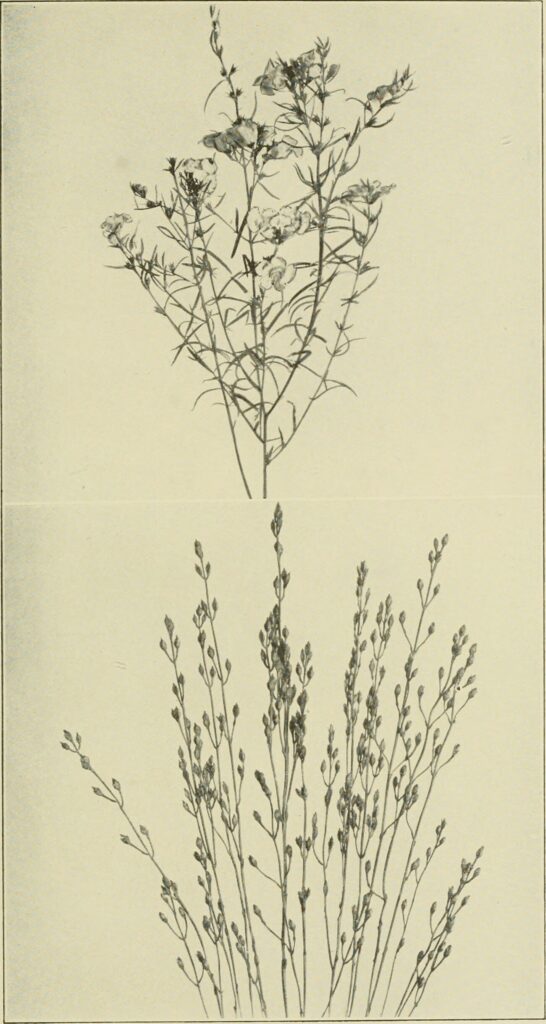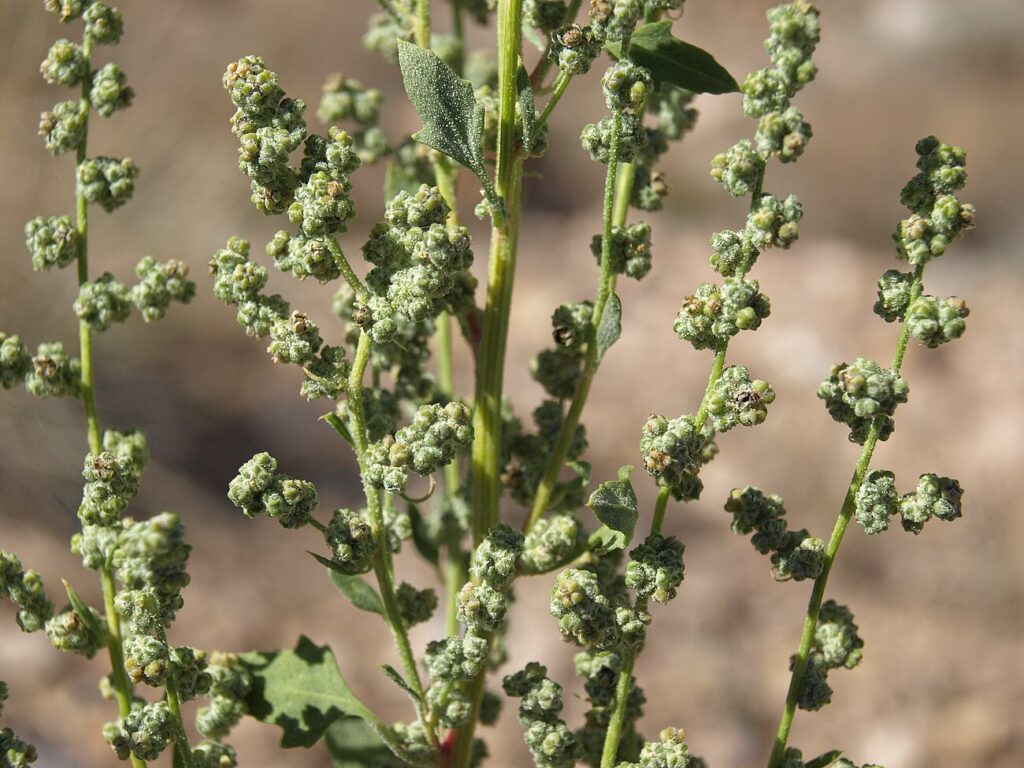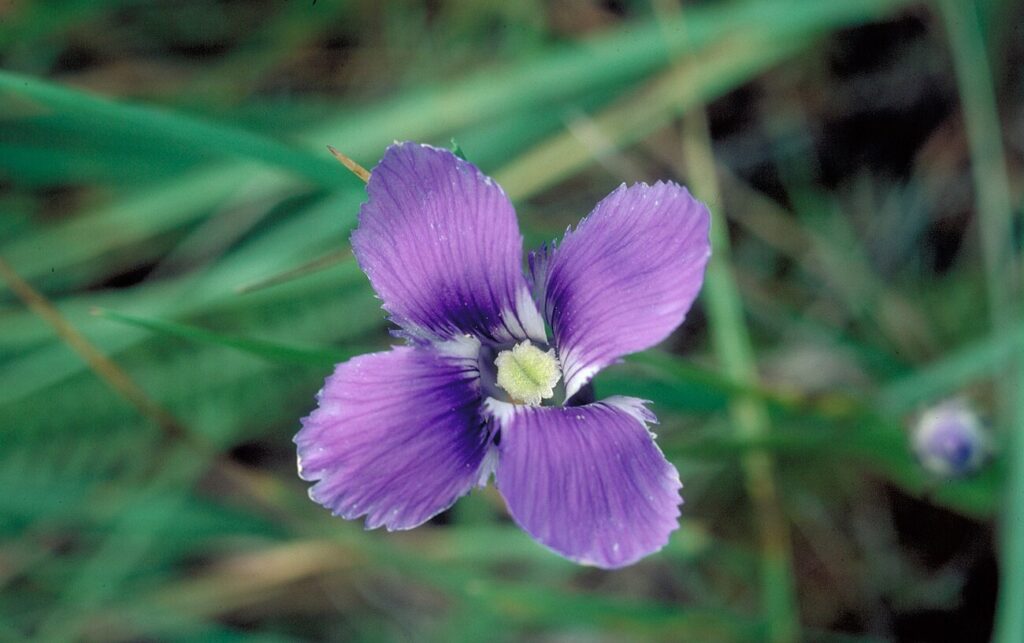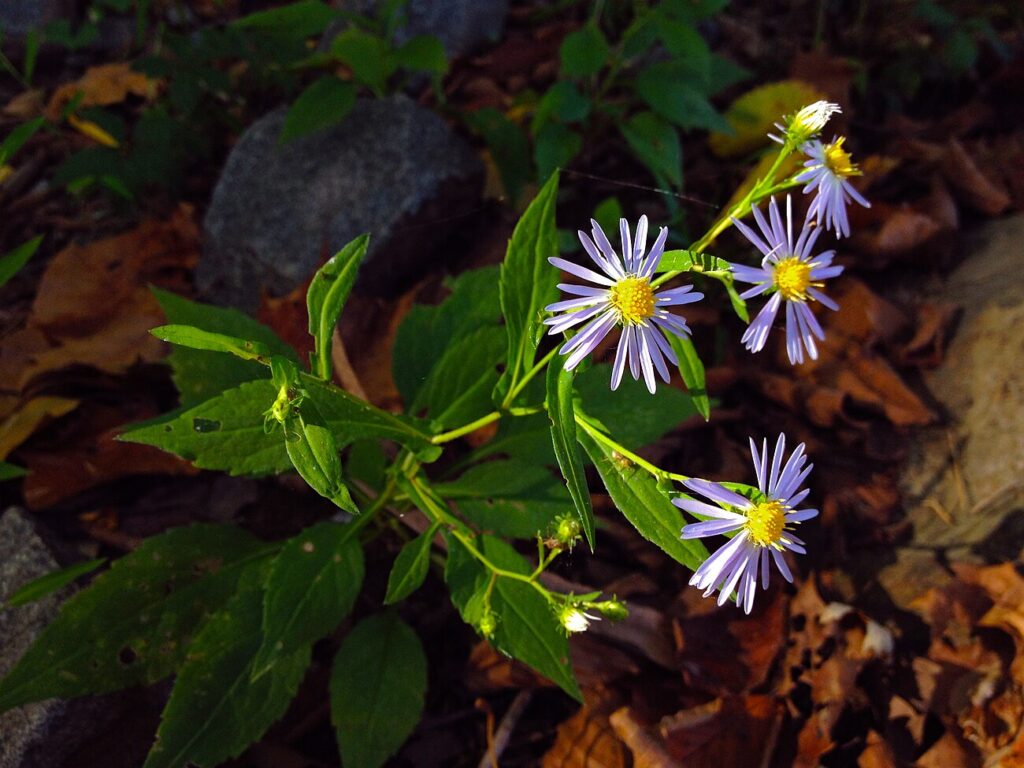Exploring Yellow Screwstem
Scientifically recognized as Bartonia virginica and classified under Gentianaceae, stands out as a distinctive Herbaceous perennial known for its unique characteristics. While it may also be found under other Synonyms, Bartonia longifolia, Bartonia multiflora.withNot specified form. You can use our free plant care app PlantPlants to identify Yellow Screwstem.
Temperature
40 F (min) to 85 F (max)
Watering
Consistent moisture; avoid drying out
Fertilizing
Balanced, slow-release fertilizer
Sunlight
Prefers partial to full shade
Toxicity
Non-toxic



Appearance and Growth Of Yellow Screwstem
At maturity, this species reaches approximately 1-2 feet tall, presenting Lanceolate to ovate leaves, arranged oppositely, with smooth margins along with Yellow, tubular flowers with five lobes, typically blooming in clusters, followed by Capsule that splits open to release seeds. These features are supported by a reliable Fibrous root system, ensuring stability and sustained growth.
Yellow Screwstem Origin and Habitat
Native to Eastern United States and Canada, Yellow Screwstem thrives in Wet meadows, marshes, and along stream banks at elevations around Typically found at low elevations. Best suited for USDA Hardiness Zone 3-8. Whether grown indoor, in a curated garden or a more natural setting, its ecological requirements help maintain its vigor over time.



How to take Care of Yellow Screwstem
Light, Soil and Watering Yellow Screwstem.
You can use our free plant identify app PlantPlants to chose the best spot for Yellow Screwstem, This plant prefers Prefers partial to full shade and flourishes in Moist, organic-rich soils with a soil pH of about 5.5 to 7.0.
Yellow Screwstem needs watering,Consistent moisture; avoid drying out, guided by PlantPlants app, You can get plants daily watering schedule. to maintain Wet to consistently moist, ensure steady hydration. Applying water through Water thoroughly and regularly supports even distribution and helps prevent overwatering or dryness.
Temperature and Humidity
Yellow Screwstem performs best within 50 F to 75 F. Its ideal growth occurs at around 65 F to 70 F, though it tolerates ranges from 40 F (min) to 85 F (max). Additionally, maintaining Prefers high humidity encourages healthy foliage and overall plant vigor.
Fertilization & Soil Health
Feeding with Balanced, slow-release fertilizer at the recommended Seasonal Application Frequency on PlantPlants App keeps nutrients balanced. Incorporating Compost enhances soil structure and fertility, while staying alert to Stunted growth, yellowing of leaves helps you adjust care as needed to maintain optimal plant health.
Routine and Maintenance
Regular attention ensures this plant’s beauty and longevity. Late winter to early spring for Remove dead or weak stems to promote new growth tidies its appearance, while Every 2-3 years, as needed may be necessary as it grows, requiring a Increase pot size by 1-2 inches increase and a fresh A mix of loamy soil with good moisture retention. for Staking or Support. Generally does not require staking.
Seasonal Changes and Propagation of Yellow Screwstem
During Winter, growth may slow and some May become dormant and lose leaves in winter can occur. For those looking to propagate, consider Seed propagation or division and provide Requires stratification for several weeks when starting from seed. If using cuttings, follow Not commonly propagated by cuttings to ensure successful rooting and healthy new plants.
Pests, Diseases and Prevention
our free plant identify and care app PlantPlants can help you diagnosisYellow Screwstem problems.Though generally robust, keep watch for Aphids, leafhoppers and remain vigilant against Root rot, mold in overly wet conditions. Implementing Ensure good air circulation and avoid overwatering and applying Insecticidal soap for pests; improve drainage for diseases when issues arise will help sustain the plant thriving.
Companions and Uses of Yellow Screwstem
This plant pairs nicely with Other wetland plants (e.g., ferns, wildflowers) and shows None noted, making it a flexible choice for various Ideal for rain gardens or wetland restorations.
Edible and Cultural Aspects
the Edible Parts: None known; primarily ornamental. Toxicty of Yellow Screwstem, Non-toxic. learning about its Not harvested for culinary uses, Not applicable, and Not applicable can be intriguing for culinary explorers. Some traditions highlight its Some indigenous cultures may have used it, but not well-documented or note its An important plant in wetland ecosystems.
Conservation and Status
With an Not assessed, proper Habitat preservation necessary due to wetland loss
Frequently Asked Questions
1. What kind of soil does Yellow Screwstem prefer?
It prefers moist, organic-rich soils.
2. How tall does Yellow Screwstem typically grow?
It usually grows to a height of 1-2 feet.
3. When do Yellow Screwstem flowers bloom?
They typically bloom in late summer to early fall.
4. Is Yellow Screwstem an annual or perennial?
It is a herbaceous perennial.
5. What light conditions are best for Yellow Screwstem?
It grows best in partial to full shade.
6. Can Yellow Screwstem tolerate drought conditions?
No, it requires consistent moisture and does not tolerate drought.
7. How often should I fertilize Yellow Screwstem?
Fertilize 2-3 times during the growing season with a balanced fertilizer.
8. Does Yellow Screwstem have any edible parts?
No, it is primarily ornamental and not harvested for culinary uses.
9. How can I propagate Yellow Screwstem?
You can propagate it through seed germination or division of plants.
10. What diseases affect Yellow Screwstem?
Common issues include root rot and mold due to overly wet conditions.



